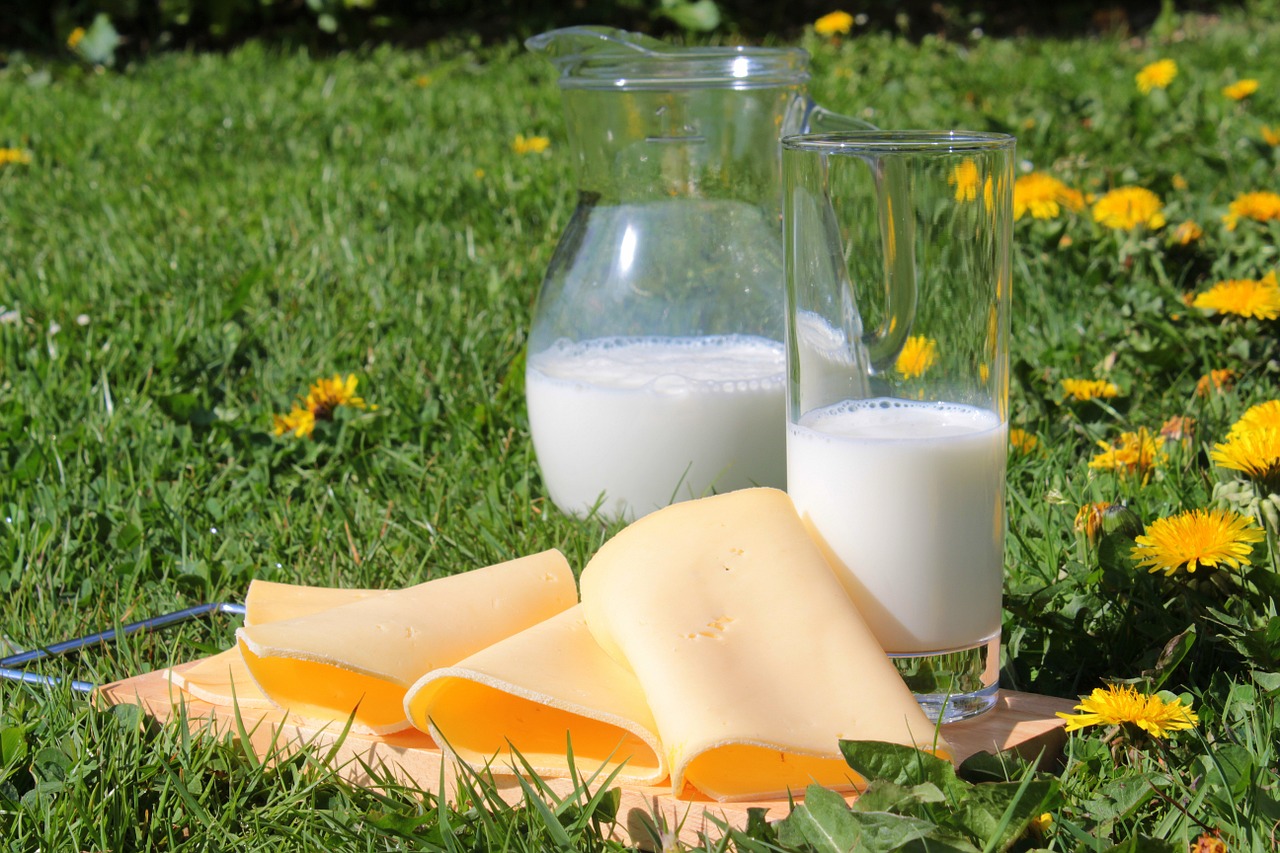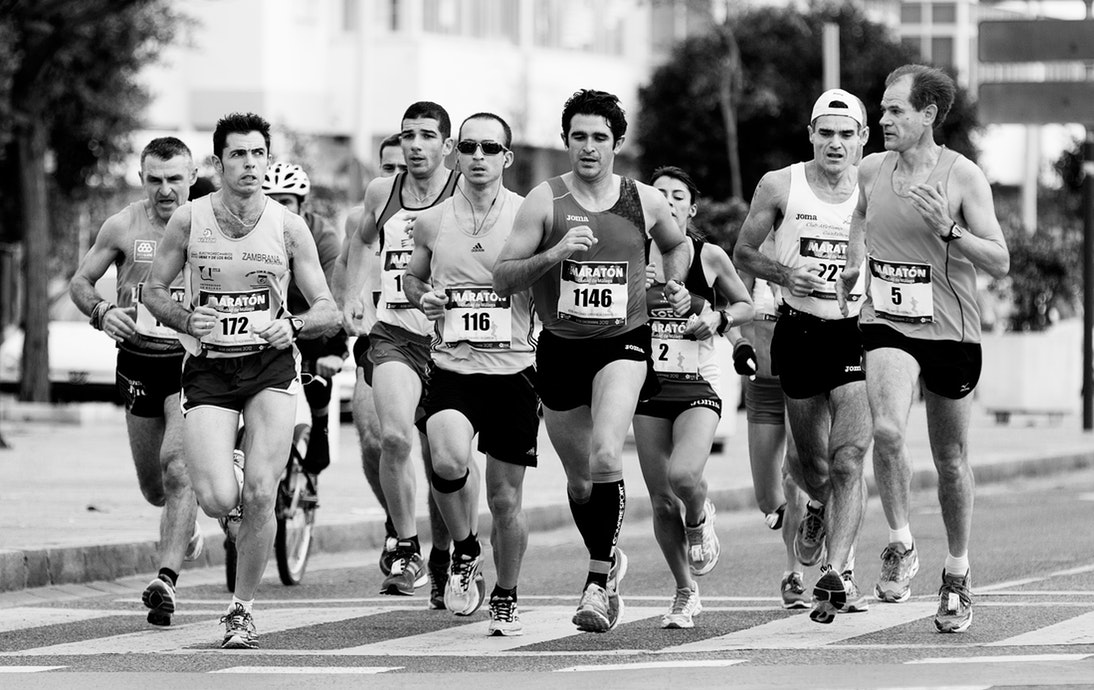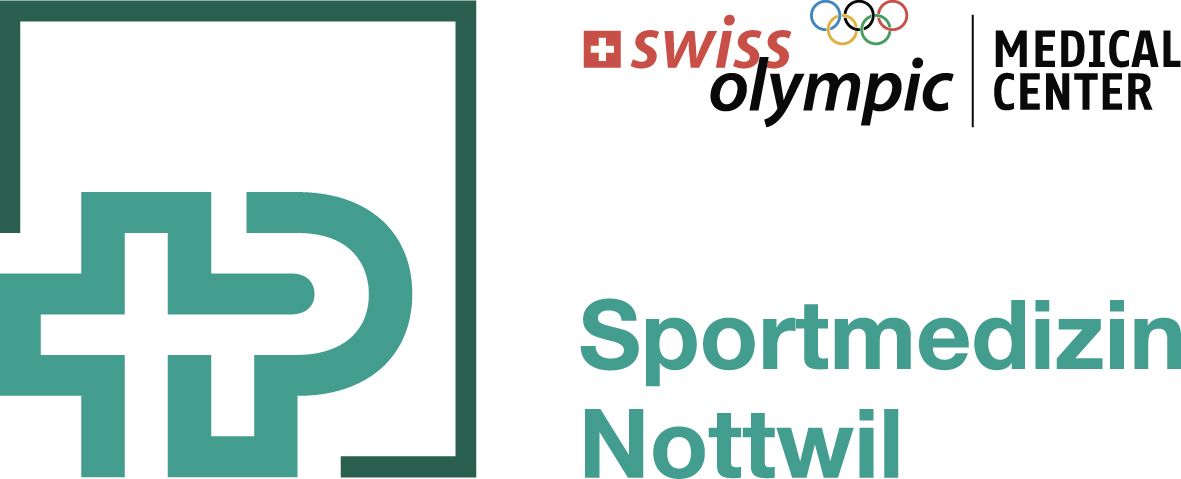Sports and nutrition scientist Dr. sc. nat. Joëlle Flück explains how you can achieve your competition weight and which individual factors play a role.
Our body weight fluctuates depending on the training period we are in. Especially when recovering from a long-lasting injury or a break from training we gain weight relatively easily. How can you get back to your competition weight? What do you need to consider?
Achieving a healthy body weight

Depending on the sport, the typical body weight is usually lower during competition season than during the rest of the year. The optimal competition weight is very hard to keep over a long period of time and during training season it brings with it the danger of injuries and illness. However, the difference between competition and off season weight should not be too big (< 3% of the body weight). This way, it can be avoided that the athlete has to lose a lot of weight within a short time frame. Before a big weight reduction you should always ask yourself whether this weight reduction brings with it a risk for your health, whether the goal is realistic (e.g genetic preconditions) and whether the goal is appropriate for your age and level of fitness. Further, you should be able to keep the weight without having to follow a strict diet all the time and without developing an eating disorder or a disturbed eating behaviour. Sports people who keep losing and gaining weight all the time probably have an unrealistic goal for their body weight.
Regulating factors for the energy balance
Different factors can considerably influence the balance between energy intake and energy usage. This can be, on the one hand, factors from the environment, and, on the other hand, individual factors such as stress, hormones or personal conditions. How much energy you use also depends on your individual restic metabolic rate (RMR). This is influenced by age, gender, but also muscle mass, stress or certain hormones. Depending on the athlete, this energy varies between 1300 and 2500 kcal per day. For a more accurate determination of your individual restic metabolic rate, it is recommendable to conduct a measurement in sober conditions. The RMR is added by any physical activity throughout the whole day, be it work or household, means of transport (e.g. biking to work, walk up stairs, etc) or in form of specific sports activities.

Genetic factors play a role, too, such as the way of energy intake and the composition of our nutrition. All of these factors strongly influence how much energy our body uses and how much energy we need to give it in order to keep our body and its weight balanced.
What do sports people need to consider when reducing their body weight?
Most people wish to lose a lot of weight within a short period of time. For sports people, this is unrealistic and not sensible at all. A negative energy balance increases the risk of losing not only fat mass, but also muscle mass. This has negative consequences for the performance capacity. It has been shown in a scientific study that, with a reduction of the body weight by 0.7% per week, more muscles could be retained than with a reduction by 1.7% within the same time frame (Garthe et al. 2011). The consequences of an excessive energy restriction are not only a decrease in performance, but also reduced muscle force, reduced storages of glycogen or reduced ability to concentrate. It also increases the risk of getting injured due to tiredness or shortage symptoms (bsp. too low bone density, iron deficiency, etc.). You should also not forget about psychological factors such as the emotional state of a person. That is, for an athlete with an existing training programme, it is recommendable not to decrease the daily energy intake by more then 500 to 700 kcal per day.
Another important factor is the protein intake. When reducing your energy intake, you normally also reduce your protein intake. However, sports people are generally recommended to consume more protein (1.4 to 1.7g per kg body weight) on a daily basis than what is recommended for a healthy, inactive person (0.8g per kg body weight). Generally, it can be said that with a weight loss through reduced energy intake, the intake of proteins per day should be increased (e.g. 1.9 to 2.1g per kg body weight). It could be shown (Mettler et al. 2010) that, through a higher protein intake during weight loss, a higher share of the muscle mass is retained. However, the protein intake should be apportioned during the day, in order for the body to always be provided with enough proteins for the forming and reparation of muscle mass. For this reason, it is sensible to talk with a specialist about how to adapt your nutrition to your training.

Very important for sports people is also the timing of the energy intake. Especially for intense sessions, carbohydrates are important in order to achieve an optimal training intensity and qualitiy. Further, the nutrition intake after training is very important for optimal recovery until the next session. It is recommended to never leave out a meal (Manore, 2015), but to adapt the amount and the composition of your food – especially the share of carbohydrates – to your training. You should also be careful to eat enough vegetables and fruit (at least 5 portions a day), so that you reach the recommended amoung of micro nutrients (e.g. vitamins and minerals) per day and that you avoid deficiency symptoms.
Practicle tips:
- Avoid reductions of energy intake of more than 500 to 700 kcal per day
- Be aware of a sufficient supply of proteins (at least 1.4 to 1.7g per kg of body weight)
- Adapt your nutrition to specific trainings (duration, scope, intensity, goal of the training)
- Eat enough carbohydrates before trainings which have the goal to achieve an especially high quality or intensity (e.g. intervals, HIIT, competitions, etc.)
- Don’t aim for too high weight reductions without a shor time frame (< 5kg in 12 weeks)
- Be aware of a healthy and balanced nutrition
- For athletes with high ambitions, it is recommendable to talk about the adaptation of nutrition to training with a specialist in sports nutrition
At the third annual meeting of the Swiss Sports Nutrition Society , the topic of weight reduction in sports will be treated more closely. Further, a lot of interesting topics within sports nutrition will be discussed by renowned presenters from within and outside Switzerland.
This blog entry was written by sports and nutrition scientist Dr. sc. nat. Joëlle Flück. She works at the sports medical centre in Nottwil and coaches athletes of all levels in terms of sports and nutrition. At the same time, she conducts studies in the area of sports nutrition and is the manager of the Swiss Sports Nutrition Society. As a former middle distance runner she has been able to collect countless medals at Swiss championships. Today, she focuses on longer distances.


